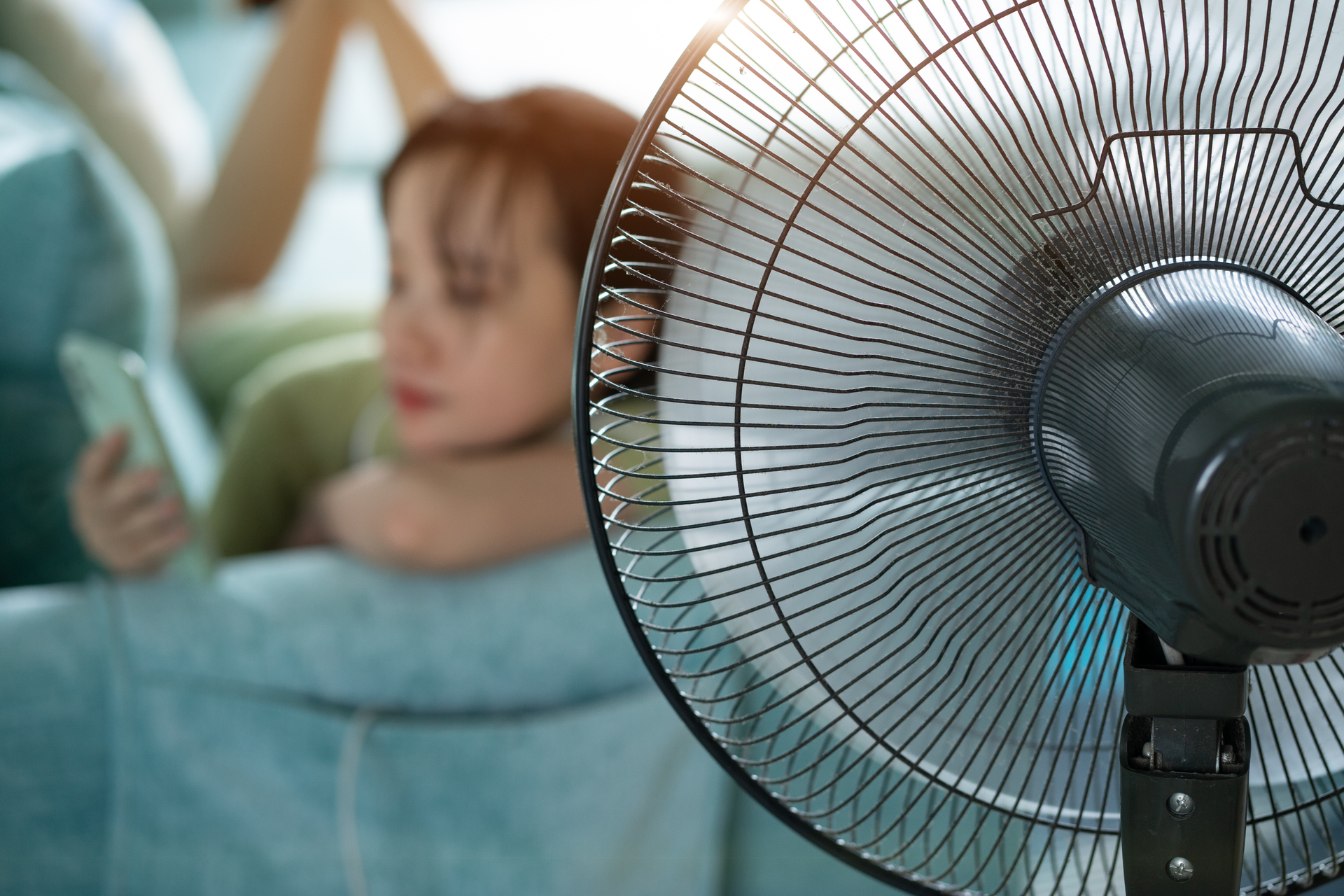Answer:
Fans and air conditioners are essential cooling devices during the summer months. Air conditioners maintain a consistent room temperature and remove humidity, while fans improve air circulation. Depending on the environment of homes, offices, or classrooms, fans, air conditioners, or both can be used.
However, improper use of these devices can negatively impact health. For example, using high fan speeds or low air conditioning temperatures, with the airflow directed at the face or head, can dehydrate the body, drying out the skin, eyes, nose, mouth, and throat. This increases susceptibility to respiratory illnesses, especially colds, the flu, and infectious diseases like meningococcal disease, measles, chickenpox, and pneumococcal disease. Unsanitary fans, air conditioners, and workspaces also promote mold and bacterial growth, leading to rhinitis, pharyngitis, bronchitis, and pneumonia.
 |
Using a fan at high speed, directed at the body, also carries the risk of respiratory illness. Illustrative photo: Vecteezy |
Using a fan at high speed, directed at the body, also carries the risk of respiratory illness. Illustrative photo: Vecteezy
To use fans and air conditioners in a health-conscious way, regularly clean your living space and the devices themselves. Avoid setting the air conditioner to excessively low temperatures or using high fan speeds directed at your body. Don't use these devices immediately after coming in from the sun, rain, or cold outdoor temperatures.
In addition, vaccinations against common respiratory illnesses like the flu, chickenpox, measles, meningococcal disease, and pneumococcal disease are recommended. These vaccines are readily available in Vietnam for both children and adults.
There are 4 types of flu vaccines, protecting against viruses like A/H1N1, A/H3N2, and influenza B. The French, Dutch, and South Korean vaccines are suitable for children from 6 months old and adults. The Vietnamese vaccine is for people aged 18 to 60. Children aged 6 months to under 9 years require two doses at least one month apart if they have not previously received a flu vaccine. People aged 9 and older need an initial dose and an annual booster.
There are 5 types of pneumococcal vaccines: pneumococcal 10, 13, 15, 20, and 23, available for children and adults, administered as prescribed by a doctor based on age. These vaccines protect against sinusitis, otitis media, pneumonia, meningitis, and sepsis caused by common pneumococcal strains.
There are 4 types of meningococcal vaccines for children and adults. Individuals should receive a combination of these vaccines to achieve full protection against the 5 common meningococcal serogroups in Vietnam: A, B, C, Y, and W-135.
Doctor Pham Hong Thuyet
Medical Manager, VNVC Vaccination System
Readers can submit vaccine-related questions for doctors to answer here.












